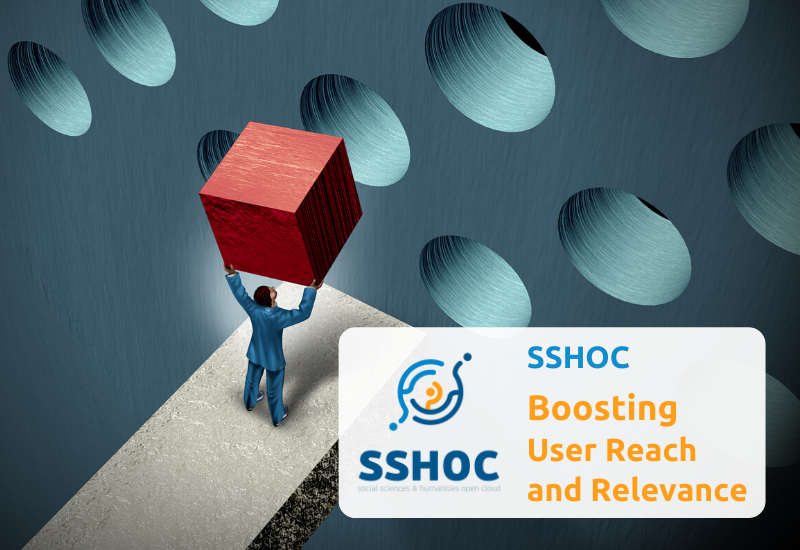
- Social Sciences & Humanities Open Cloud
SSHOC: Boosting User Reach and Relevance

Date:
17 January 2020
A new report from the SSHOC consortium highlights important roles for the SSH community in engaging potential users of the products and services being developed within the project.
Entitled “Challenges user communities face when attempting to contribute to SSHOC”, the report analyses and describes the key obstacles to discovery and productive use of the SSH resources - which will also be incorporated into the European Open Science Cloud (EOSC).
Amongst the remedies given prominence in the report are awareness creation, training, and the implementation of standards.
Obstacles to engagement
The report makes an important distinction between those social science communities which are represented within the SSHOC project and those outside of the consortium and still to be reached as contributors and users. Variations in the nature of the obstacles to user engagement also result from the size and strength of potential user organisations, and from the position of individual researchers within an organisational hierarchy.
The following generic obstacles to interacting with the EOSC/SSHOC infrastructure are ranked in terms of their relevance (low, medium, high) to each user group.
- Unfamiliarity
- Expense (in terms of money, time, attention and training)
- Opportunity cost
- Inability (in the form of insufficient relevant skills and competence)
Remedies
The analysis reveals numerous avenues by which these obstacles can be overcome. Says Friedel Grant of SSHOC partner LIBER, the Association of European Research Libraries, “As EOSC intermediaries and trainers, research librarians have an essential role to play in connecting SSHOC with potential users. This report underscores how we can contribute through the delivery of substantive training for example. It also highlights how, in the course of direct interactions with individual researchers, we can promote the standards and protocols developed by SSHOC, and demonstrate that pitching in with their own data is both welcome and very feasible.”
Read the full document on Zenodo: Deliverable 9.1 Challenges user communities face when attempting to contribute to SSHOC
To learn more about the SSHOC project, sign up for our newsletter or contact us directly!
